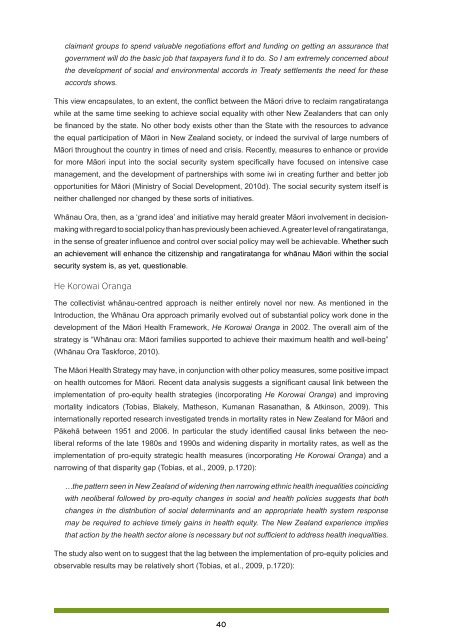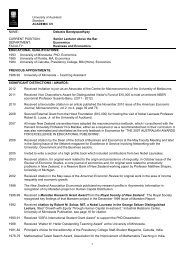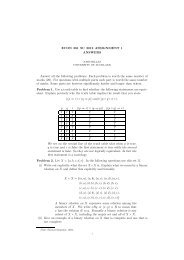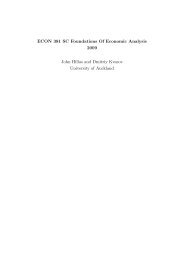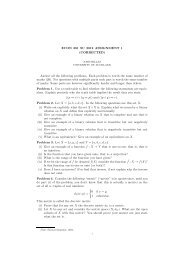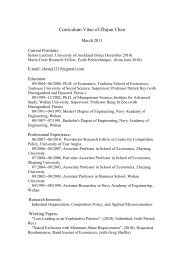Left Further Behind - Child Poverty Action Group
Left Further Behind - Child Poverty Action Group
Left Further Behind - Child Poverty Action Group
Create successful ePaper yourself
Turn your PDF publications into a flip-book with our unique Google optimized e-Paper software.
claimant groups to spend valuable negotiations effort and funding on getting an assurance that<br />
government will do the basic job that taxpayers fund it to do. So I am extremely concerned about<br />
the development of social and environmental accords in Treaty settlements the need for these<br />
accords shows.<br />
This view encapsulates, to an extent, the conflict between the Māori drive to reclaim rangatiratanga<br />
while at the same time seeking to achieve social equality with other New Zealanders that can only<br />
be financed by the state. No other body exists other than the State with the resources to advance<br />
the equal participation of Māori in New Zealand society, or indeed the survival of large numbers of<br />
Māori throughout the country in times of need and crisis. Recently, measures to enhance or provide<br />
for more Māori input into the social security system specifically have focused on intensive case<br />
management, and the development of partnerships with some iwi in creating further and better job<br />
opportunities for Māori (Ministry of Social Development, 2010d). The social security system itself is<br />
neither challenged nor changed by these sorts of initiatives.<br />
Whānau Ora, then, as a ‘grand idea’ and initiative may herald greater Māori involvement in decisionmaking<br />
with regard to social policy than has previously been achieved. A greater level of rangatiratanga,<br />
in the sense of greater influence and control over social policy may well be achievable. Whether such<br />
an achievement will enhance the citizenship and rangatiratanga for whānau Māori within the social<br />
security system is, as yet, questionable.<br />
He Korowai Oranga<br />
The collectivist whānau-centred approach is neither entirely novel nor new. As mentioned in the<br />
Introduction, the Whānau Ora approach primarily evolved out of substantial policy work done in the<br />
development of the Māori Health Framework, He Korowai Oranga in 2002. The overall aim of the<br />
strategy is “Whānau ora: Māori families supported to achieve their maximum health and well-being”<br />
(Whānau Ora Taskforce, 2010).<br />
The Māori Health Strategy may have, in conjunction with other policy measures, some positive impact<br />
on health outcomes for Māori. Recent data analysis suggests a significant causal link between the<br />
implementation of pro-equity health strategies (incorporating He Korowai Oranga) and improving<br />
mortality indicators (Tobias, Blakely, Matheson, Kumanan Rasanathan, & Atkinson, 2009). This<br />
internationally reported research investigated trends in mortality rates in New Zealand for Māori and<br />
Pākehā between 1951 and 2006. In particular the study identified causal links between the neoliberal<br />
reforms of the late 1980s and 1990s and widening disparity in mortality rates, as well as the<br />
implementation of pro-equity strategic health measures (incorporating He Korowai Oranga) and a<br />
narrowing of that disparity gap (Tobias, et al., 2009, p.1720):<br />
…the pattern seen in New Zealand of widening then narrowing ethnic health inequalities coinciding<br />
with neoliberal followed by pro-equity changes in social and health policies suggests that both<br />
changes in the distribution of social determinants and an appropriate health system response<br />
may be required to achieve timely gains in health equity. The New Zealand experience implies<br />
that action by the health sector alone is necessary but not sufficient to address health inequalities.<br />
The study also went on to suggest that the lag between the implementation of pro-equity policies and<br />
observable results may be relatively short (Tobias, et al., 2009, p.1720):<br />
40


